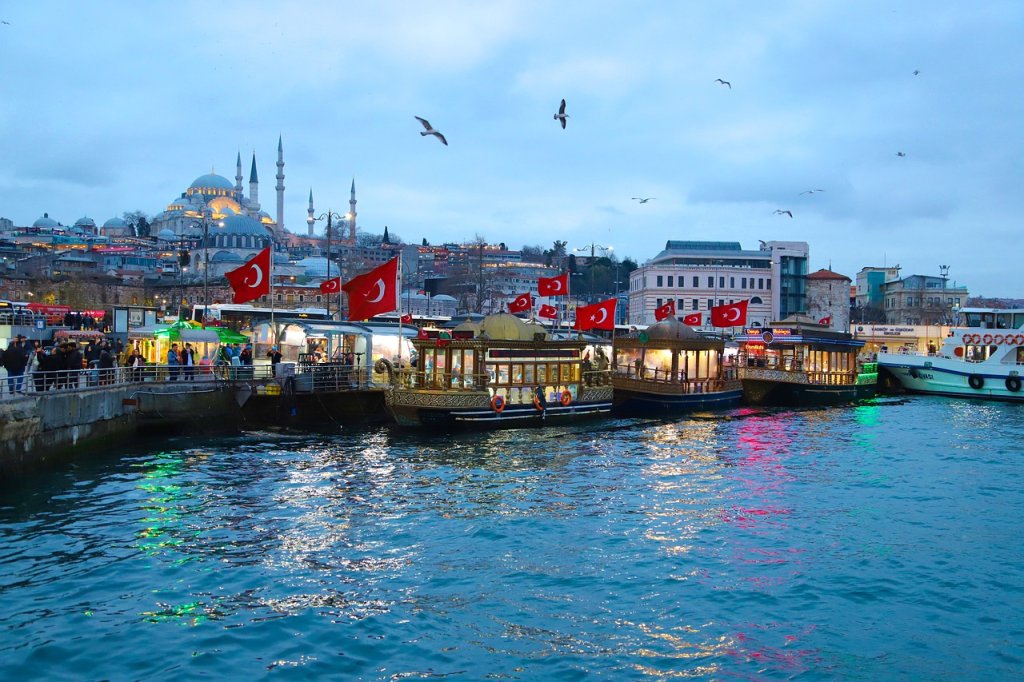
Despite claims by Turkey’s leaders of possessing “global” or “central power,” Turkey continues to exhibit middle power characteristics that significantly shape, if not completely determine, its foreign policy toward various external actors and regions around the world. In addition, not only do ongoing uncertainties in both regional and global politics hamper Turkey’s ability to make substantial foreign policy changes or firm commitments in its external relations, but the ever-present national role contestation, despite the predominance of the ideology of the Justice and Development Party (AKP) at the state level since 2002, also carries implications for Turkey’s regional and global policies.
In recent years, there has been increasing interest in discussing Turkey’s “changing role” in its surrounding regions and at the international level, which has led to some theorizing about Turkey’s grand strategy. Whereas some scholars argued that Turkey should adjust its grand strategy due to the changing international order, emphasizing the need for a comprehensive strategy to protect its national interests, others explored historical precursors to Turkey’s grand strategy, identifying indicators and also limitations for future strategizing efforts. By way of emphasizing a need for a process-based approach to grand strategizing for Turkey, Aydınlı (2020) argued that a non-geopolitical and non-ideological idea, such as growth, should determine Turkey’s grand strategy. According to Şan-Akca (2020), democratic assertiveness should be the guiding framework for Turkey’s grand strategy and Turkey should focus on democratic reforms at the domestic level while pursuing an assertive but democracy-first-oriented defense strategy.
Focusing specifically on the question of “How Should Türkiye Position itself in the Competition for Alternative International Systems?,” Tarık Oğuzlu (2023) noted three fundamental factors that should determine the positioning of Turkey in the currently evolving global and regional politics: (1) the negative impact of the geopolitical developments in Turkey’s neighborhood on Turkey’s territorial integrity and economic prosperity, (2) The nature of Turkey as a trading state, which helps the country to “derive half of its national wealth from international trade,” and (3) Turkey’s status as a “medium-sized [economic] power” with a national income of less than one trillion dollars. According to Oğuzlu, the predominance of Turkey’s economic relationship with the Western world regarding trade and foreign direct investment should lead Turkey to keep distant from the current polarizations between the West, led by the US and its Western allies on the one hand, and the seemingly strengthening China-Russia cooperative relationship on the other.
Today, Turkey is still a NATO member and a candidate for European Union membership. Although Turkey has sought warm ties with Russia, and more recently with China. The relations between Turkey and these two countries are driven primarily by their respective presidents, Erdoğan and Putin, and economic needs, respectively. Some have considered Turkey’s tilt toward Russia, especially since the 2016 attempted coup against President Erdoğan, worrisome and requiring immediate attention. However, As argued by Balta and Özdal (2023) Turkish-Russian relations remain fragile at best and are dependent heavily on the level of cohesiveness within the Western bloc. Similarly, Turkey’s relations with China are not as strong politically and militarily and can be fractured easily due to the lack of a strongly institutionalized relationship.
Turkey’s relations with these powers will continue to be tested as power keeps shifting, and new conflicts continue to erupt in Turkey’s surrounding regions, shaped by decades of conflict. Despite some calls for Turkey to follow a neighborly core doctrine for Turkey’s grand strategy, with a focus on keeping the military forces of the great powers “out of [Turkey’s] immediate neighbors,” realistically, Turkey has neither the hard nor the soft power to control many of the regional developments due to complex nature of relationships and issues in its surrounding regions, as well as the volatile conditions at the global level.
Tensions will continue to brew in the Caucasus as the loss of Nagorno-Karabakh has prompted many in Armenia, and around the world, to question the traditional view that Russia was their main protector in a region where great power interests collide. It is still unclear how a new power vacuum in the region may present opportunities and challenges for Turkey. Amidst the death and destruction following Hamas’s October 7th attack on Israel and Israel’s ongoing assault on the Gaza Strip, with no concern for human life, in an attempt to “demolish Hamas,” there are concerns that the conflict could escalate into a broader regional war. From a geopolitical standpoint, a war would undoubtedly exacerbate the ongoing volatility in the region. However, even short of a regional conflict, the current Israeli-Hamas war represents an absolute game-changer, as it is likely to stall the progress toward broader Arab-Israeli normalization. Complete, or even partial, (re)occupation of the Gaza Strip will create a new wave of refugees and socio-economic calamity in the region with great impact on Turkey and Turkey’s relations with the Middle Eastern states. Finally, although the full impact remains unclear, there are concerns that the war between Israel and Hamas will divert the world’s, especially the US’s, attention from Ukraine’s long and bloody struggle against Russia. As a country still enjoying a working relationship with both Russia and Ukraine, Turkey has followed a policy that some have called “pro-Ukraine neutrality,” … a “non-binary spot between Ukraine, NATO, and Russia in the war: Ankara is pro-Ukrainian, but not anti-Russian.” It is not clear how this policy may be challenged if the dynamics in this war change due to the American and European response to the developments in the Middle East.
In light of the points I have discussed above and considering the expected continuation of worldwide instability during a time marked by tectonic shifts in regional and global politics, the (re)positioning of Turkey becomes increasingly important. This is particularly relevant because there remains significant uncertainty surrounding the boundaries, principles, and norms of the alternative systems that are often perceived as challenging the Western liberal order.
While the post-World War II (WWII) international order shows signs of faltering, the fundamental challenge to the US-led Western world does not involve questioning the post-WWII ideas and ideals themselves. Instead, what undergoes scrutiny are the international institutions and how these institutions, in conjunction with major powers, have contributed to perpetuating political and economic disparities across the world. In other words, while democratic and liberal ideas have gained near-global acceptance among the world’s population, as evident in numerous liberty- and democracy-oriented social movements, the post-WWII institutions have fallen short of fully realizing the promises made by the architects of the post-WWII order. Furthermore, those in positions of power, both within countries and on a global scale, have frequently found it more convenient to collaborate at the expense of ensuring broader and equitable implementation of the post-WWII ideas and ideals.
In such a world, Turkey should prioritize pragmatic adaptation in its foreign relations and strive to adjust foreign policy strategies and decisions in response to changing circumstances and evolving global dynamics while maintaining a focus on the progressive ideas and ideals of the post-WWII international order. As Akgül-Açıkmeşe and I argued recently (2023), pragmatism should be regarded as a crucial organizing concept for policymaking. As defined by Rosenau in his article dated 1970 Adaptation refers to any behavior or collection of behaviors that enable a state to cope with or stimulate changes in the external and internal environment, contributing to the maintenance of essential structures within acceptable limits (Rosenau 1970: 367). As such, pragmatic adaptation enables a country like Turkey to focus on the realities on the ground to effectively navigate complex and unpredictable regional and international situations and help Turkey’s foreign policymakers to make decisions that will address the country’s specific goals and priorities within the given constraints.
This approach involves being flexible and adjusting foreign policy as needed to avoid unnecessary and costly confrontations or conflicts. Moreover, a pragmatic approach focuses on diplomacy and the formation of alliances that revolve around common goals, rather than rigid ideological tendencies and emotional responses to international events. Most significantly, in today’s world, a foreign policy approach rooted in pragmatic adaptation can help Turkey avoid isolation or marginalization on the world stage by preventing impulsive reactions to regional and global developments. It ensures that Turkey’s national interests are aligned with the goals and interests that lead to a peaceful and prosperous future for all.

Prof. Dr. Binnur Özkeçeci-Taner, Hamline University
Binnur Özkeçeci-Taner is Professor of Political Science at Hamline University (Minnesota, USA). She currently serves as Associate Editor of the Journal of Global Security Studies and is the author of The Role of Ideas in Coalition Government Foreign Policymaking: The Case of Turkey (1991-2002), as well as numerous articles and book chapters on Turkish foreign policy. Most recently, she co-edited (with Sinem Akgül Açıkmeşe) the book, One Hundred Years of Turkish Foreign Policy (1923-2023) Historical and Theoretical Reflections (Palgrave Macmillan, 2023).
To cite this work: Binnur Özkeçeci-Taner, “Turkey’s Positioning in a Shifting Global and Regional Landscape: Embracing Pragmatic Adaptation in Foreign Policy” Panorama, Online, 13 November 2023, https://www.uikpanorama.com/blog/2023/11/13/turkeys-positioning/
Copyright@UIKPanorama. All on-line and print rights reserved. Opinions expressed in works published by the Panorama belongs to the authors alone unless otherwise stated, and do not imply endorsement by the IRCT, Global Academy, or the Editors/Editorial Board of Panorama.

